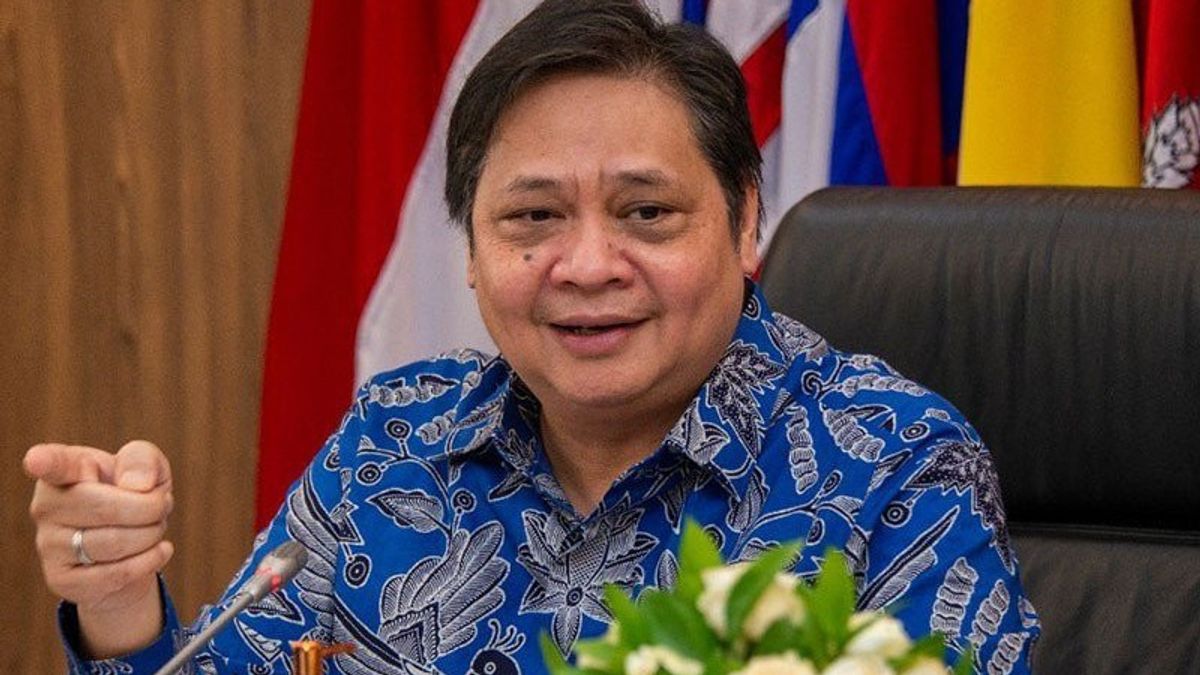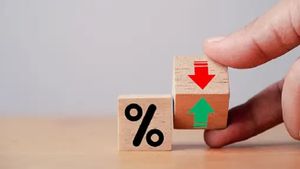JAKARTA - Coordinating Minister for Economic Affairs Airlangga Hartarto said the government would issue regulations on domestic market obligation (DMO) and domestic price obligation (DPO) in line with the reopening of export taps for cooking oil and cooking oil raw materials.
According to Airlangga, this is done to ensure the availability of cooking oil raw materials in the country while at the same time ensuring affordable prices for the community.
"Once again I emphasize that this is to ensure the availability of cooking oil raw materials by implementing the domestic market obligation (DMO) regulations by the Ministry of Trade, and the domestic price obligation (DPO) which refers to the BPKP study and this will also be determined by the Ministry of Trade," he said in a statement. press conference virtually, Friday, May 20.
On this occasion, Airlangga explained, the total availability of cooking oil or the amount of DMO that must be maintained in the country is 10 million tons.
"We maintain this amount of DMO about 10 million tons of cooking oil. It consists of 8 million tons of cooking oil and there is an availability of supply or as a reserve of 2 million tons," he explained.
Meanwhile, regarding the amount of DMO that must be fulfilled by each producer, it will be regulated by the Ministry of Trade.
"Now the Ministry of Trade will determine the amount of DMO that needs to be fulfilled or must be fulfilled by each producer. As well as a mechanism to produce and distribute cooking oil to the community evenly and on target," he said.
Airlangga emphasized that this decision was a follow-up to the Decree of President Joko Widodo (Jokowi) who decided to reopen the export faucet on Monday, May 23, 2022.
Previously reported, President Joko Widodo (Jokowi) announced that Indonesia would again open the tap for cooking oil exports next week.
"I have decided that the export of cooking oil will reopen on Monday, May 23," Jokowi said as shown on the Presidential Secretariat's YouTube, Thursday, May 19.
Jokowi said this decision was taken by prioritizing several considerations.
First, because of the increasing supply of cooking oil to meet domestic needs.
"Based on my direct checks in the field and the reports I received, thank God, the supply of cooking oil continues to grow," said Jokowi.
"The national demand for bulk cooking oil is approximately 194,000 tons per month and before the export ban our supply only reached 64,500 tons, but after the export ban in April, our supply reached 211,000 tons per month, exceeding our monthly national needs," he added. Jokowi.
The second reason is the decline in the national average price of cooking oil. Then, the government also considers the condition of 17 million workers in the palm oil industry.
So the government decided to lift the export ban that had previously been enforced.
However, strict supervision will continue to be carried out so that domestic supplies are still met.
The English, Chinese, Japanese, Arabic, and French versions are automatically generated by the AI. So there may still be inaccuracies in translating, please always see Indonesian as our main language. (system supported by DigitalSiber.id)













